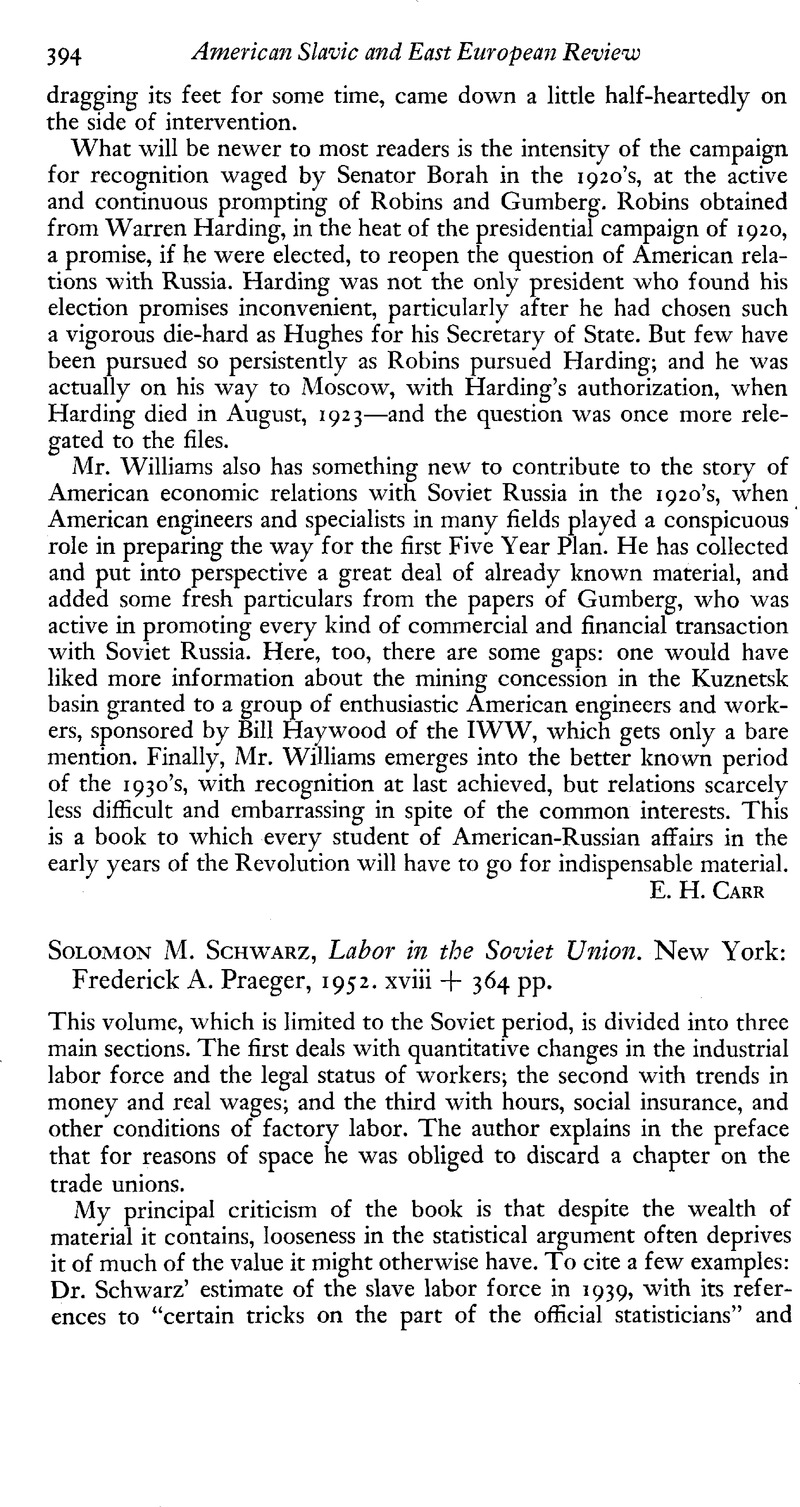No CrossRef data available.
Published online by Cambridge University Press: 25 January 2017

* I refer here to the data cited on pages 131, 177, 235-36. These data are useful for what they attempt to do, but they are heavily qualified in the original sources, and cannot be used for international real wage comparison in any meaningful sense. For example, the data on page 236 put “real hourly earnings” in 1950 in Sweden at 450 (USSR = 100), while Norway stood at 600, which is sheer nonsense. I also find it hard to reconcile Australia at 764, with 714 for the United States; Denmark at 521, compared with Switzerland at 329. Granted that in all of these countries, real wages were considerably higher than in the USSR; my point simply is that assigning arbitrary index numbers to each country adds nothing to our knowledge of “real wages.”